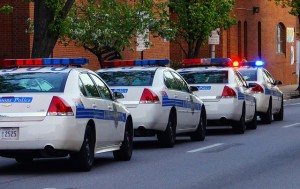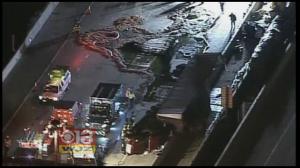 Maryland’s highest court recently released a potentially groundbreaking opinion by ruling that adults may be liable for the actions of underage drinkers whom they provided alcohol. The ruling stems from two cases involving auto accidents where intoxicated teenagers were the drivers. The plaintiff in the Baltimore County case was walking her dog when she was struck by an SUV driven by an 18-year-old that had been drinking at the home of the defendant. The defendant had allegedly provided mixed drinks to the teenaged driver, and made no effort to assure that the young man would not get behind the wheel that night. The other case stemmed from a tragic accident that occurred in Howard County back in 2009. The plaintiff is the family of a 17-year-old that was killed as he was the passenger in the flat bed of a pickup truck driven by his allegedly intoxicated friend. The lawsuit states that the driver had been drinking in the garage of the defendant’s home with full knowledge of the defendant.
Maryland’s highest court recently released a potentially groundbreaking opinion by ruling that adults may be liable for the actions of underage drinkers whom they provided alcohol. The ruling stems from two cases involving auto accidents where intoxicated teenagers were the drivers. The plaintiff in the Baltimore County case was walking her dog when she was struck by an SUV driven by an 18-year-old that had been drinking at the home of the defendant. The defendant had allegedly provided mixed drinks to the teenaged driver, and made no effort to assure that the young man would not get behind the wheel that night. The other case stemmed from a tragic accident that occurred in Howard County back in 2009. The plaintiff is the family of a 17-year-old that was killed as he was the passenger in the flat bed of a pickup truck driven by his allegedly intoxicated friend. The lawsuit states that the driver had been drinking in the garage of the defendant’s home with full knowledge of the defendant.
Both lawsuits target a third party that is claimed to be liable for damages caused by another individual, which in these cases are the two teenaged drivers. This theory of indirect third party “social host” liability is tough to prove and until now has never been recognized in Maryland. Upwards of 20 states have dram shop laws that allow liability of establishments arising from the sale of visibly intoxicated individuals that later cause injuries to another, but our state is not one of them. While this Court of Appeals ruling does not address dram shop, it will now pave the way for future civil actions against adults that furnish alcohol to minors. The court opined that young adults under the age of 21 are not competent to handle the potentially dangerous effects of alcohol, and are more susceptible to harming themselves or others when presented with the opportunity to drink in excess. According to the court some of the onus must fall on an adult that was present, and facilitated the conduct.
This appeals court ruling addresses civil liability, and it coincidentally comes at a time when the legislator has just expanded criminal liability for adults that furnish alcohol to minors. In May the governor approved a bill that will soon allow judges to incarcerate adults for up to one year if he or she provided alcohol to an underage drinker that subsequently injures or kills another person while driving a motor vehicle. This jail time provision was not present in the old statute, which under section 10-117 of the criminal code had a maximum punishment of a $2,500 fine for a first offense and $5,000 for a second offense. There will still be fines under the new law and the possibility of a misdemeanor criminal conviction, but jail time will only become a sentencing option in there is a serious bodily injury. Some lawmakers attempted to add a jail provision regardless of the minor causing an injury, though this version did not pass the General Assembly.
 Criminal Defense Lawyer Blog
Criminal Defense Lawyer Blog



 There are not many civil law topics worthy of a post on a criminal law blog, but the revival of the contributory negligence debate is one topic that deserves an exception. The Maryland civil justice system is one of four states plus Washington D.C. that uses the contributory negligence standard in all civil lawsuits. The contributory negligence standard bars recovery for a party that contributed in any manner to the accident or injury. If a plaintiff brings a civil lawsuit he or she may not recover a dime if the defense lawyers show that the plaintiff was negligent. For example, in a pedestrian accident case if the defense lawyer that represents the driver of the vehicle that hit the pedestrian shows that the pedestrian negligently ran across the street, then the pedestrian may not legally recover any damages. Even if the plaintiff’s lawyer has shown the driver who caused the accident was speeding and driving recklessly.
There are not many civil law topics worthy of a post on a criminal law blog, but the revival of the contributory negligence debate is one topic that deserves an exception. The Maryland civil justice system is one of four states plus Washington D.C. that uses the contributory negligence standard in all civil lawsuits. The contributory negligence standard bars recovery for a party that contributed in any manner to the accident or injury. If a plaintiff brings a civil lawsuit he or she may not recover a dime if the defense lawyers show that the plaintiff was negligent. For example, in a pedestrian accident case if the defense lawyer that represents the driver of the vehicle that hit the pedestrian shows that the pedestrian negligently ran across the street, then the pedestrian may not legally recover any damages. Even if the plaintiff’s lawyer has shown the driver who caused the accident was speeding and driving recklessly. The city of Washington D.C. has agreed to settle four civil lawsuits over false DUI convictions. The civil claims for damages were filed back in 2010 by 4 men whose DUI convictions were tainted by inaccurate breath alcohol testing machines. The city has agreed to pay a total of $20,000 plus attorney’s fees to the 4 plaintiffs. Two of the plaintiffs will receive $5000, and the other two will receive $8,000 and $2,000 respectively. The lawsuit alleged that city officials and police were aware that the breath alcohol testing machines were flawed, but continued to use them in criminal DUI prosecutions. As early as 2008 an independent expert informed the city that their breath alcohol machines were not providing accurate results for a variety of reasons. The machines used in D.C. are similar to the Intoxilyzer machines used in Maryland, and require regular maintenance and calibration. D.C. officials failed to do either, but that does not even tell half the story of the city’s dishonest and fraudulent behavior.
The city of Washington D.C. has agreed to settle four civil lawsuits over false DUI convictions. The civil claims for damages were filed back in 2010 by 4 men whose DUI convictions were tainted by inaccurate breath alcohol testing machines. The city has agreed to pay a total of $20,000 plus attorney’s fees to the 4 plaintiffs. Two of the plaintiffs will receive $5000, and the other two will receive $8,000 and $2,000 respectively. The lawsuit alleged that city officials and police were aware that the breath alcohol testing machines were flawed, but continued to use them in criminal DUI prosecutions. As early as 2008 an independent expert informed the city that their breath alcohol machines were not providing accurate results for a variety of reasons. The machines used in D.C. are similar to the Intoxilyzer machines used in Maryland, and require regular maintenance and calibration. D.C. officials failed to do either, but that does not even tell half the story of the city’s dishonest and fraudulent behavior.  Maryland Police have charged a truck driver with DUI after the driver crashed his tractor trailer on interstate 95 in Baltimore. The apparent drunk driving accident occurred on February 15, on an overpass above interstate 895. Investigators do not know the exact cause of the crash, but the driver likely lost control causing the truck to turn over in the left lane of 95, just north of the Baltimore harbor tunnel. The allegedly intoxicated truck driver was carrying thousands of gallons of a water based chemical additive used in making concrete. Maryland police have yet to release the blood alcohol content of the accused driver, nor did the police divulge whether the driver submitted to a breath or blood alcohol test.
Maryland Police have charged a truck driver with DUI after the driver crashed his tractor trailer on interstate 95 in Baltimore. The apparent drunk driving accident occurred on February 15, on an overpass above interstate 895. Investigators do not know the exact cause of the crash, but the driver likely lost control causing the truck to turn over in the left lane of 95, just north of the Baltimore harbor tunnel. The allegedly intoxicated truck driver was carrying thousands of gallons of a water based chemical additive used in making concrete. Maryland police have yet to release the blood alcohol content of the accused driver, nor did the police divulge whether the driver submitted to a breath or blood alcohol test.